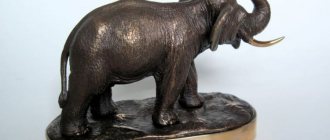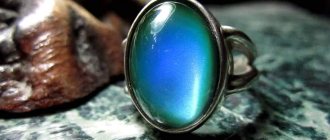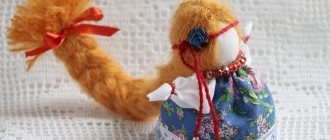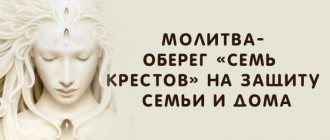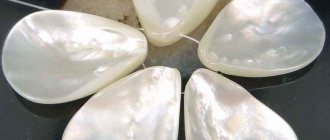Feng Shui
The elephant is highly revered not only in China, but also in India and Africa. In these three countries, the elephant is depicted as the emblem of kingship and represents the qualities that a person needs to be a good ruler - intelligence, insight, wisdom, patience, dignity, peacefulness and love.
And in the science of Feng Shui, the elephant talisman is no less popular than the animal itself. But a particularly significant talisman for the people of China is the talisman consisting of 7 elephants. But, let's talk about everything in order.
The purpose of the feng shui talisman is the elephant
The elephant is an auspicious animal in Feng Shui
. It is a symbol of stability, reliability and stability. Feng Shui experts say that thanks to its long trunk, the elephant can draw good luck and prosperity into the house.
The elephant talisman is usually placed on the windowsill, with its trunk directed towards the street, so it draws good luck into the house from the street. But if you place the elephant with its trunk inside the house, it will mean that good luck is already present in your house.
Also, the elephant figurine perfectly removes the destructive and unfavorable energy of angles.
You can place an elephant in any area of your house or apartment, but it will still be better if the elephant figurine is placed in the northwest or southeast, thereby the elephant will support the head of the family in any matter or attract a reliable patron to your home, because that the elephant is the embodiment of strength and power - a northwestern symbol.
As with many Feng Shui talismans, there are different variations in the presence of an elephant in the house - a figurine or a simple image of an elephant has magical powers.
As a Feng Shui talisman, you can use figurines made from any material, be it bone, bronze or ceramics. You can also use soft and rubber elephant toys as a mascot.
Feng Shui elephants
According to Feng Shui, the elephant represents a symbol of wisdom, greatness and good nature. Elephants in the Asian world are considered divine animals; they are strong, resilient, endowed with patience and intelligence. They rightfully bear the title of royal animal. In China, the elephant is considered a symbol of health and longevity, it symbolizes spiritual knowledge and serves as a symbol of harmony.
Buddhist texts say that a white elephant will help people free themselves from earthly shackles. In Thailand, elephants are worshiped as a powerful and wise animal that protects against evil spirits. Local architecture in almost every building has an altar with figurines of deities, on which elephants are necessarily present.
In India, the elephant is the king of animals, a symbol of prudence and wisdom. In Christianity, elephants also found themselves, the elephant symbolizes the victory of Christ over evil, and it is depicted as trampling a snake.
In Feng Shui, figurines of elephants with a raised trunk are used; they attract the energy of good luck, and serve as a good talisman and amulet. According to Feng Shui, white elephants are considered strong generators of good luck; they represent stability and support. Suffice it to recall from history people’s idea of a flat world, the earth is supported by three elephants, which stand on a large turtle floating on the ocean of the universe. According to Feng Shui, the support of elephants has a special symbolic meaning, its meaning means strong support, you will always have something to rely on, you stand firmly on your feet.
According to Feng Shui, elephants attract positive QI energy and prudence, they create the foundation for a sustainable lifestyle. You should definitely use elephant symbols in your home or work, they eliminate conflicts and problems, provide support and prosperity, and bring a craving for spiritual development and the manifestation of wisdom.
According to Feng Shui, to protect your home, you can use two elephants whose figures are placed outside the house above the front door, it turns out that at the entrance to the house you are greeted by two elephants. This use will allow you to neutralize unfavorable CI at the entrance, which will have a beneficial effect on all residents of your home.
According to Feng Shui, elephants can also be used to repel the negative energy of Sha. For example, if the corner of the house looks out your window, you can place a figurine of an elephant on the windowsill with its trunk raised upward in the direction of this corner, and thus the negative impact from the Sha will be neutralized. In the Feng Shui technique Flying Stars, you can also use elephants to smooth out the negative influence of bad stars and activate good ones. In Feng Shui, an elephant is a universal weapon for all occasions, and it must be used.
Favorite sector (zone) of an elephant according to Feng Shui
According to the teachings of Feng Shui, elephants have proven themselves to be excellent in all areas and sectors of the house. But the most effective thing will be if you place the elephant in the southeastern sector of the house, so the elephant will personify a stable foundation in the financial situation of the owners of the house. In the northwestern sector, the elephant will support the head of the family, this will mean that you will acquire strong patrons.
In Feng Shui, the main thing is symbolism, so an image or painting of an elephant, or elephant figurines made from different materials, will work equally well.
But the main thing is not to overdo it with elephants, since Feng Shui is, first of all, harmony and balance, so a large advantage in one direction, according to Feng Shui, can have a negative impact. Therefore, if you have financial stability, you should not additionally use elephant symbols in the southeastern sector of wealth.
Seven elephants according to feng shui
In Feng Shui, the number seven has a special meaning; seven denotes the completion of a cycle, for example the lunar cycle lasts exactly 7 days. According to Feng Shui, the seven elephants were not chosen by chance; they have special powers. Seven elephant figurines can be used to activate the wealth sector, which will allow you to experience constant financial luck.
Also, 7 elephants can be used to attract a favorable star, according to Feng Shui Flying Stars. In fact, the number seven here means completeness, that is, the final result. And the completeness of a Feng Shui sector or zone in the presence of favorable QI energy activates it. Therefore, be sure to use elephant symbols in the Feng Shui decoration of your home.
Share with your friends. +5 to KARMA.
Articles from the category:
- Sectors and zones of the apartment according to Feng Shui, we apply Bagua or Lo Shu to the plan. The Feng Shui Bagua Octagon is the main tool for analyzing energy assessment...
- Feng Shui wish map Everyone knows that dreams often materialize in a way that is mysterious to us. It's only worth...
- Wealth zone according to Feng Shui Element - Wood. Direction – South-East. Green color. To maximize your...
- What is the GUA number? Favorable and unfavorable directions The number of GUA allows you to determine a person’s individual energy map. The number of GUA is…
- Feng Shui manicure Nowadays it is difficult to imagine a real lady without a manicure. This procedure has become...
Popular articles:
- Method for analyzing a natal chart (horoscope) A natal chart (horoscope) is a person’s astrological passport, the decoding of which...
- Compatibility horoscope. Zodiac Sign Compatibility Chart In some Eastern countries, as well as in India, there is an ancient tradition: spouses before…
- Ascendant in the natal chart The Sun, Moon and Ascendant are the three most important figures in the natal chart, determining the personality and...
- SUN in the natal chart (horoscope) Element: Fire. Stones: ruby, topaz, peridot, aventurine, yellow beryl, heliodor and…
The myth of the elephant
In the East, the elephant was and remains a symbol of longevity and moderation, for the elephant lives from 70 to 100 years, the life expectancy of Indian elephants is slightly less - 60 years. And elephants die not from old age, but from hunger, because in old age an elephant loses all its teeth and has nothing to chew food with.
The elephant is not often seen in Chinese art, however, for the Chinese it symbolizes strength, indestructibility and wisdom.
In Buddhism, the elephant is a sacred animal and is considered one of the seven treasures of this faith. Thus, the stone elephants that guard the tombs of the Ming Dynasty are the object of worship of childless women. Women come to these elephants, who guard the path to the tombs, and pray to them for the birth of a child.
In the Greco-Roman Empire, the elephant is an emblem of wisdom and belongs to the planet Mercury. The Roman writer Pliny believed that the elephant was a religious animal that worshiped the stars and the Sun. On the new moon, the elephant bathes in the river and calls out to Heaven, thus the elephant purifies its soul.
But in the minds of the ancient Romans, the elephant was associated with victory, glory, longevity and health. He was a symbol of victory over death.
Later, these ideas of the ancient Romans were passed on to Christians. Now in Christian traditions, the elephant has become a symbol of the victory of Jesus Christ over evil and death.
In Europe in the Middle Ages, the elephant, like the unicorn, was considered a fabulous animal that is found only in myths and fairy tales. If you look at paintings made in the Middle Ages, you will notice that the elephant is present only in paintings depicting the thickets of paradise. And already during the Crusades, elephants were depicted on coats of arms. In psychology, the elephant is the embodiment of power, kindness and wisdom.
Stories from Feng Shui masters about the elephant talisman
Once a man came to one of the Feng Shui masters and complained that his wife was wasteful with money. Because of this, they could not save money for necessary but expensive things. A Feng Shui master recommended that he buy an elephant talisman. When the man brought this talisman into the house, his wife really liked this figurine; she admired the elephant for a long time and took it in her hands, even talking to it. Gradually, the elephant influenced her with its stable and resilient character. Since then, she stopped throwing money away and their family had extra money. The husband stopped arguing with her - harmony in the house was restored.
According to feng shui
In the Celestial Empire, special attention is paid to amulets. In Chinese mythology, figurines of animals and gods attract success in business to the house, and also have a positive effect on all other areas of life. This animal is one of such talismans in Feng Shui.
The image can be found on coins, attributes of religion and symbols of power. But what does it mean in Feng Shui?
Symbol of peace and harmony
A figurine in the form of an elephant is considered a powerful talisman that can attract positive Qi energy into the home. It means:
- world;
- wisdom;
- confidence;
- kindness;
- harmony.
The main task of this amulet is to protect the house from damage, the evil eye and other troubles. At the same time, it creates an atmosphere of peace and balance.
The version with a raised proboscis symbolizes prosperity and wealth in Feng Shui. The owner will be protected from theft and thoughtless spending. He will begin to take finances seriously and look soberly at the surrounding reality.
Something is often hung on the raised trunk, as if to enhance efficiency. But this cannot be done. After all, it is he who is the conductor of Qi energy. By hanging a trinket there, the owner shows his disrespect for the magical attribute.
If the long nose is down, this does not mean that a streak of failure will begin. His situation is not an indicator of impending financial troubles. On the contrary, it is a symbol of fertility and abundance. This is how the amulet removes all negative energy from the house. It is recommended to have two figurines in your home with different positions of the trunk: one will protect against negativity, and the second will attract luck and prosperity.
There are also the following variations to choose from:
- To strengthen family ties, you need to purchase a white figurine.
- Three elephants symbolize the unity of heaven, earth and man. This talisman helps in acquiring good luck and harmony in all areas of life.
Talisman – seven elephants
A set of seven elephants has even greater power and magical significance as a talisman. But you will probably ask yourself: why exactly seven elephants and what magical meaning does this talisman have?
The fact is that the number seven is very often found not only in magical books and teachings, but also in everyday life. For example, in ancient times seven metals were known: mercury, gold, silver, copper, lead, tin and iron. Seven planets that we know from school and that can be seen with the naked eye - Mars, Venus, Jupiter, Saturn, Moon, Sun, Mercury. These planets have always been and remain at the same distance from each other and spin in the same orbit - it was from these planets that the concept of constant harmony in the Universe came. And that is why the number seven became magical. There is also the concept of the seven Chinese gods of luck - Daikoku, Fukurokuju Ebisu, Bishamon, Hotei Benzai, Jurojin. You can endlessly give examples where the number seven appears, therefore, if seven elephants settle in your house, then your house will always be full of happiness, love, prosperity, good luck, mutual understanding and health. But no matter what elephant talisman you choose, remember that the main thing is your sympathy and faith in the elephant talisman.
Author: Nikandrova Elena
Article protected by copyright and related rights. When using or reprinting material, an active link to the women's website inmoment.ru is required!
Return to the beginning of the Feng Shui section Return to the beginning of the Magic section
Figurines of seven porcelain or bone elephants decorated the home of almost every Soviet citizen. Let's try to figure out exactly where porcelain elephants go and why they attracted people so much.
The popularity of seven elephants was explained simply - people sincerely believed that it was a symbol of comfort and prosperity and that it would bring long-awaited happiness to their homes. But what was this belief based on?
First, let's talk about why there are seven elephants and not eight or, say, nine. Seven is a magical number, and therefore it is actively present in our lives. There are seven days in a week, there are seven colors in the rainbow, and there are also seven notes, seven wonders of the world.
In Christianity, there are seven ranks of angels, seven deadly sins, and seven weeks of Lent. And among Buddhists, the number seven itself is considered sacred.
Symbol of wisdom
Now let's talk about elephants. In Buddhism, they personify prudence, stability, and symbolize spiritual life. It is not for nothing that a beautiful white elephant is a symbol of someone who has achieved the highest enlightenment, love, kindness, compassion and mercy.
In China, the elephant is credited with qualities such as strength, wisdom, longevity, prudence and insight. By the way, the elephant actually personifies the supreme power in the Celestial Empire.
In India, the elephant is considered a symbol of the god of wisdom and happiness, Ganesha. It symbolizes overcoming one's passions. The Indian elephant is wise, insightful, strong, patient. By the way, the custom of giving seven elephants for good luck came from India. The elephant is a recognized long-liver, and the string of these animals itself symbolizes the ascent to eternity, unceasing life.
Where to place an elephant according to Feng Shui?
| What do we want to get | Where to place the figurine |
| luck and prosperity | on the windowsill, trunk directed towards the street |
| attracting useful people, protecting against envy and ill will | one or two elephant figures with trunks pointing upward, looking at the front door |
| neutralization of “poisonous arrows” (sharp corners of various objects in the interior) | directly opposite all sharp corners |
| stable income | southeast |
| better health | East |
| gaining a strong patron, increasing the authority of the head of the family | northwest |
| happy marital relationship | a pair of sculptures in the southwestern part of the bedroom |
| conception | elephant with lowered trunk, turned towards the marital bed |
| from negativity at work | on the desktop |
| improving academic performance at school | on the student’s desk (computer) |
| eliminating negative energy in rooms with a large number of things (for example, in a warehouse) | in any visible place |
Elephants in India and China have always been revered and respected. For its strength and wisdom, the elephant was often depicted on the emblems of Asian kingdoms. The animal was prescribed patience, good nature, peacefulness, physical and spiritual strength.
Interiors were decorated with figurines and images of impressive animals, even in places where elephants had never been found.
